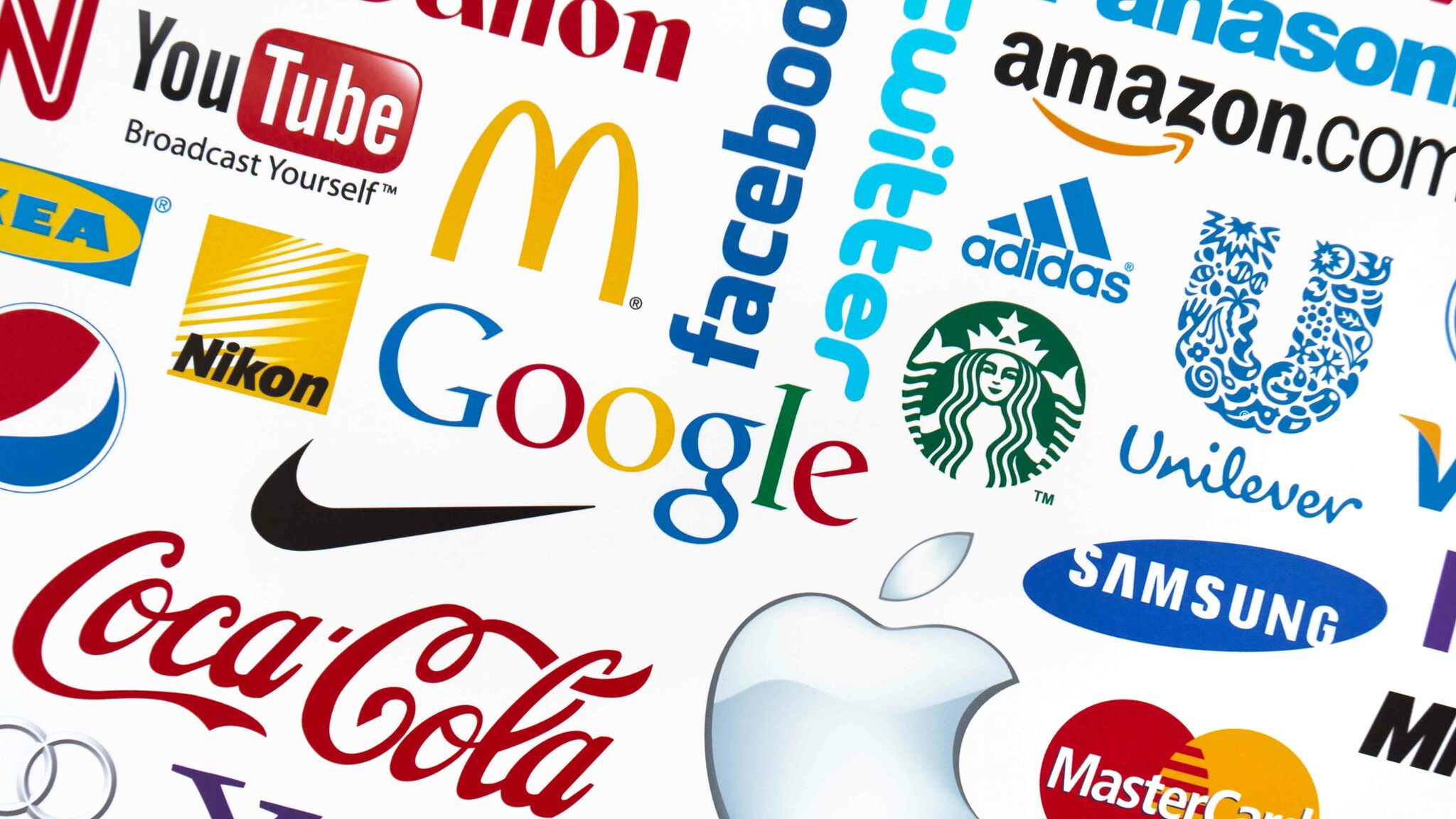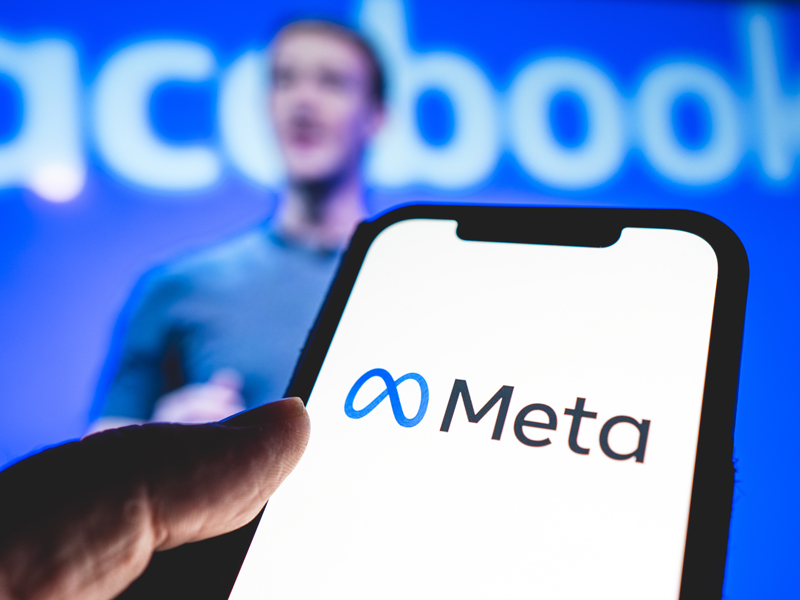
© bloomicon / Adobe Stock
“One Has to Be Extremely Careful When It Comes to New Brand Names”
"Facebook" becomes "Meta". This is a popular example of a new brand name. Why do companies rename themselves?
Google shows 822 million results when you enter the words “Facebook” and “Meta.” That confirms that the upcoming change in the company’s name is creating waves and piquing interest around the world. But why do companies and corporate groups give themselves new names anyway? And what meaning do they have? An interview with the business expert Professor Christoph Burmann.
Mr. Burmann, the Facebook corporation is changing its name and will soon be called Meta. What is the reason for this?
I suspect there to be two reasons. Firstly, there are companies that are successful with one particular type of product - in this case Facebook as a social media network. They then expand and buy other companies and brands, much like Facebook purchased WhatsApp and Instagram, for example. Additionally, an entirely new project - the cyberworld metaverse - is just getting started. In order to bring together all of these activities under one roof, also from a legal perspective, one creates a new brand than stands for more than the original namesake Facebook. Meta is intended to reference the metaverse project. Personally, I believe it to be unwise as it creates confusion.
What is the other reason that you see?
Sometimes, a bad image is the reason for a name change. Facebook has faced increasing criticism for its unethical business practices. Even the American Congress became aware of it and whistle blowers have reported unpleasant internal information. Thus, the renaming PR coup is meant to function as a distraction from the negative media reports. The creation of numerous jobs is immediately also mentioned in connection to it. “Great,” is what people then say. It could work but it is not a given.

© Romain TALON /Adobe Stock
As a corporate group, Google changed its name to Alphabet in 2015. However, it’s simply a different stock name for many people. The average consumer continues to use the search engine Google. And the social media network Facebook will keep its name.
In terms of brand management, a great deal was done right with Alphabet, as the Google group is more diversified than the Facebook universe. They have a very broad portfolio. With the artificial name Alphabet there is no longer any danger of a mix-up. This name now stands for the activities of the entire group and not the search engine. That is certainly more important for investors than it is for people in day-to-day life. A similar example: In the economic world, Volkswagen stands for the group, to which the brands Audi, Lamborghini, Bentley, Porsche, and several more belong. Thus, Volkswagen doesn’t actually stand for the car itself - that’s called VW.
The renaming of brands is no seldom occurrence. Older people might remember how the Raider chocolate bar was re-christened Twix in 1991. Later, Ruhrkohle AG turned into Evonik and this year, Dänisches Bettenlager suddenly appeared as Jysk …
… and it is a process where one needs to be extremely careful. Companies lose the connection to their customers, cause confusion, and create uncertainty among staff. The renaming of Raider to Twix can be simply explained: All across the globe, the chocolate bar was called Twix. It was only in Germany that it still held the name Raider. The change was logical in the frame of a worldwide brand strategy. The renaming of the very well-known brand Bank für Gemeinwirtschaft - BfG in short - was an entirely different situation in 2000. It was renamed SEB Bank, which was a completely unknown brand and stood for the new owners, Skandinaviska Enskilda Banken. The reason was the BfG’s tarnished image after a big crisis. The cause of the Ruhrkohle AG renaming was the fact that the group does much more than energy production today. For example, they also have business in the chemical and real estate industries. The reason for the usage of the artificial name Evonik was similar to that of Alphabet.
“There are 300 service providers for brand assessment in Germany alone”
Karstadt and Kaufhof are two of the most well-known and oldest brand names in the history of the German economy. Yet it is exactly those brands that are to disappear and make space for Galeria…
…despite the fact that the addition “Galeria” has been working well in combination with Kaufhof for many years. And most people now know that Karstadt and Kaufhof are connected. To now get rid of these two brand names and put Galeria center-stage is quite sensible actually. The break is not too big.
So names or brands are valuable assets. Maybe even individual letters? Would Apple be as successful as it is today if the iPhone, iPad, or iMac were to have been put on the market without the “i”?
The “i” clearly marks a family of related products. It’s brilliant from a brand strategy perspective. Generally, the marketing of the Apple brand and its products is very good, which is surely also part of their success.
Hier Portraitfoto Burmann / BU unten
Let’s take a look from the big wide world into a small village: How useful is it that a business is called “Car Dealership Heino Krüger,” when the old owner - Heino Krüger - sold the company 20 years ago?
It is not uncommon. The old name is kept so that people have a connection to what they know. However, in my opinion, one should try to convey new structures and information via the name in the long term. In the case of the car dealership, this would mean slowly allowing the old name to disappear and continually pushing the new ownership into the foreground. It is fine if this happens over a long time.
Can the value of brand names be determined?
Yes. There are more than 300 service providers in Germany alone who do exactly that using different methods. That leads to there being sometimes up to 1,000% difference in the value assessment of a brand. So it is actually highly unreliable but a gold mine for those who offer the service. It is legally regulated that if a company wishes to purchase a brand that the value of said brand must be included in the records, amongst other things. And said value needs to be recalculated each year.
Since when has brand renaming been a thing?
The history of brands is over 500 years old and started with the naming of breweries. What is now known under the specialist term “mergers & acquisitions” was already around back then. That automatically led to the matter of the brand name arising. In the past decades, it has actually increased immensely and has been pushed forward by the company concentration. If two or more companies are merged, one has to think about future brand names.
Profile:
Professor Christoph Burmann (59) studied business studies at the University of Münster. During that time he also took on a two-year role within the marketing agency Ogilvy & Mather in Capetown, South Africa. He worked for many years as a research assistant at the Institute of Marketing in Münster, which was headed up by the “Marketing Pope” Professor Heribert Meffert. In 1993, Burmann completed his PhD there and his habilitation followed in 2002. It was in the same year that he was appointed at the University of Bremen where he created the Chair for Innovative Brand Management (LiM). Said group has been as part of the markstones Institute of Marketing, Branding & Technology, which researches marketing characterized by new technologies, since the end of 2018.